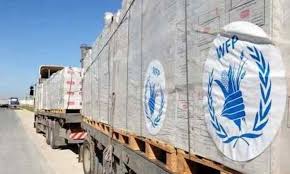The United Nations says it has so far raised a mere 18 percent of the US$132 million it requires to provide food assistance and hygiene kits to more than 750,000 affected by armed conflict in northern Mozambique.
Head of the World Food Programme (WFP) in Mozambique, Antonella D’Aprile said the UN agency requires US$10.5 million per month to provide food assistance to 750,000 people affected by the conflict in northern Mozambique.
These comprise over 500,000 internally displaced persons (IDPs) and 250,000 from host communities in the three provinces of Cabo Delgado, Nampula and Niassa.
“To ensure humanitarian food assistance for the next 12 months, WFP needs US$132.4 million, of which only US$24.4 million have been secured as of late December 2020,” D’Aprile said on Thursday, warning that “without sufficient funding, the food supply will be compromised.”
WFP is currently assisting up to 400,000 people in the three provinces with an in-kind monthly family food basket of 50 kg of cereals, 5 litres of oil and 10kg of dried beans and lentils.
It also provides cash-based assistance where local markets are functioning, allowing families to choose which basic needs to meet (food items and hygiene kits) through redeeming value vouchers of 3600 meticas (about US$50) per month.
This food basket ensures at least 81 percent of the daily kilocalorie needs of displaced families, and contributes to preventing already traumatized and vulnerable families from falling victim to exploitation or employing negative coping mechanisms for survival.
D’Aprile warned that WFP “may be forced to reduce or halt vital food assistance to conflict-affected people in Cabo Delgado, Nampula and Niassa over the next three months.”
“It is incredibly timely to join efforts now and protect the food and nutrition security and livelihood of Mozambicans – men, women, adolescents, and children – impacted by armed attacks, Cyclone Kenneth and the COVID-19 pandemic,” the official said.
The IDPs are especially vulnerable to the spread of COVID-19 because they are crowded together in camps, host families’ backyards and outdoors with no or inadequate shelter, health services and access to clean water and sanitation.
Northern Mozambique has witnessed an increase in armed attacks by insurgents allegedly linked to the Islamic State.
The Mozambican government says the number of IDPs has risen to above 565,000 in recent weeks.
JN/APA


